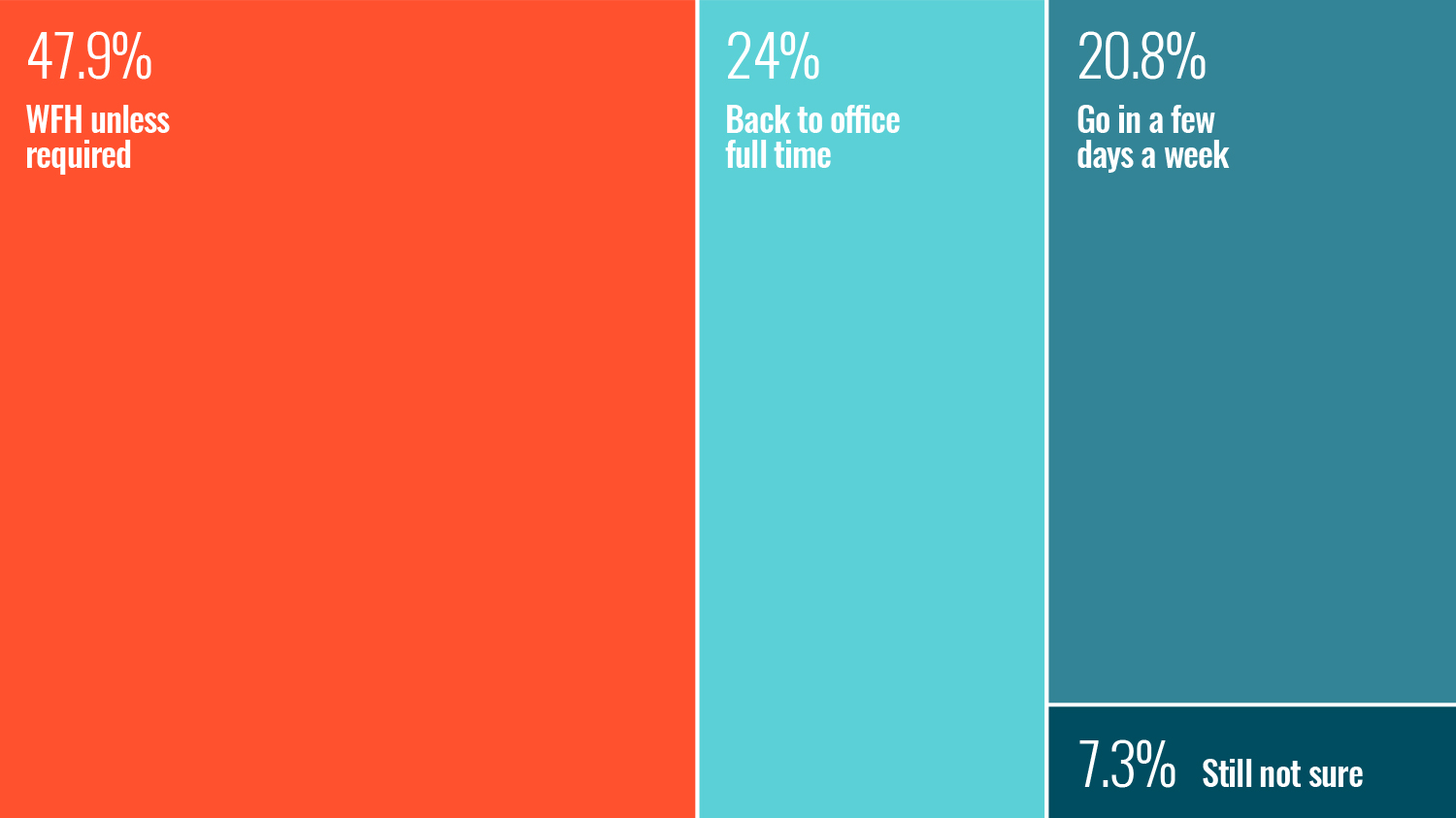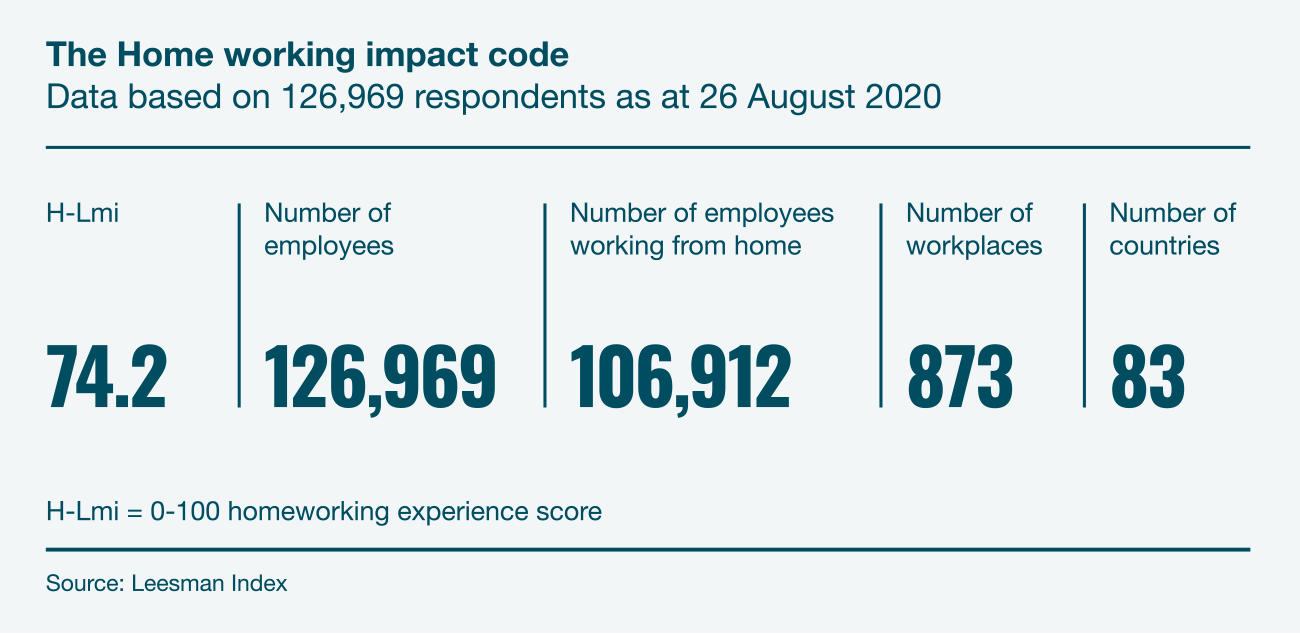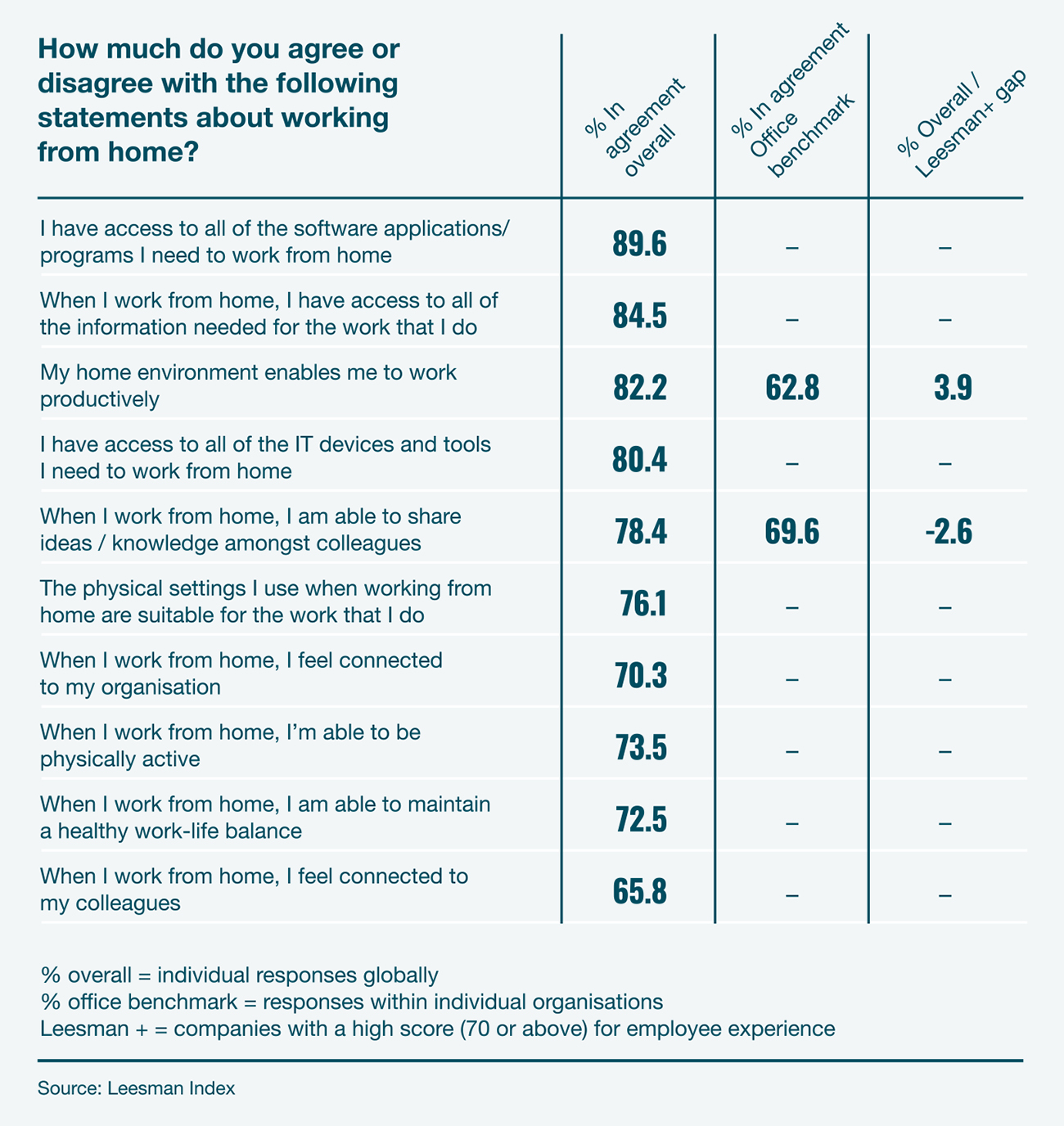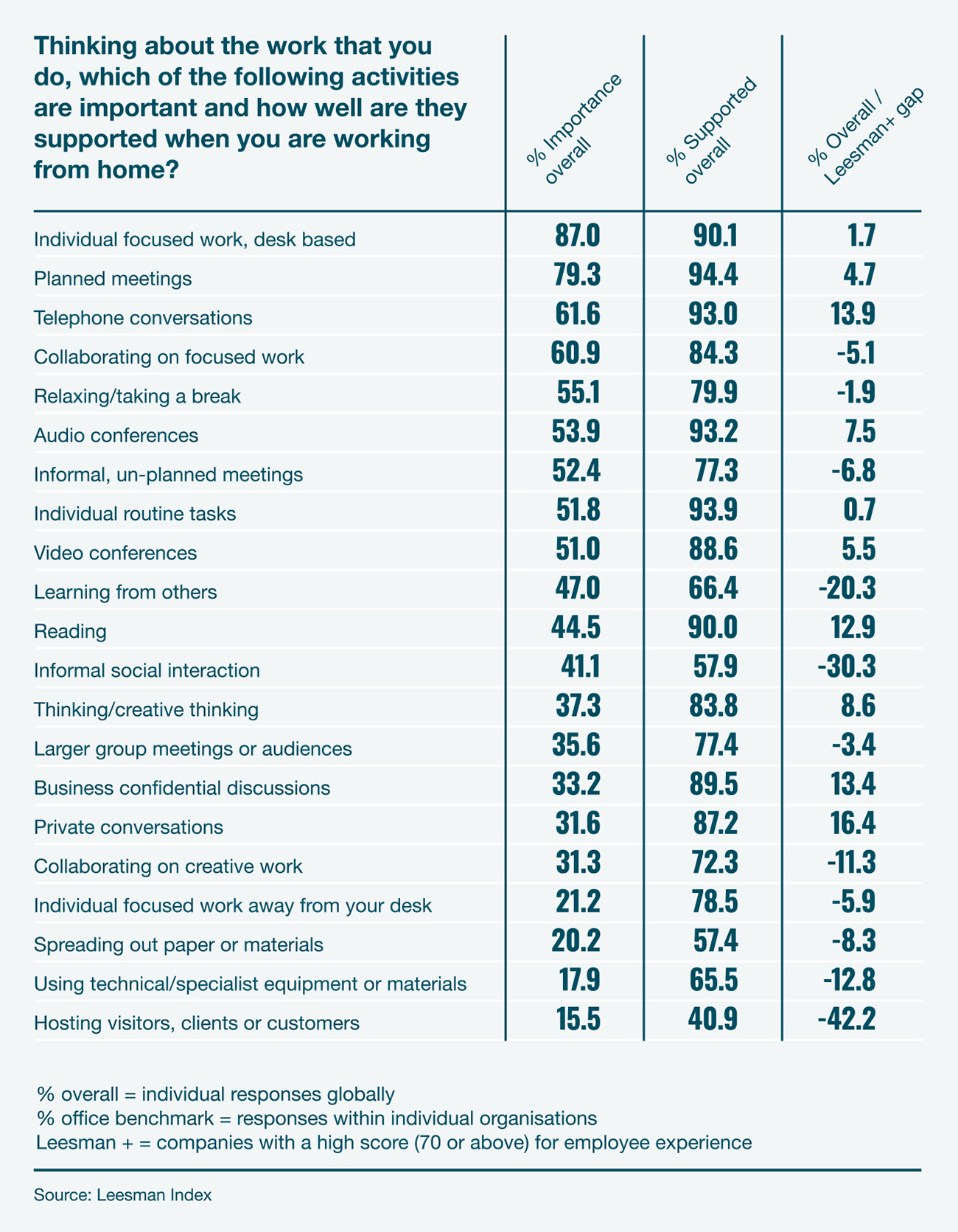
The results of the Modus Twitter poll on home working
COVID-19 has changed the work environment for many people, if not for ever, then at least for the time being. Lockdowns around the world forced companies to switch to remote working where possible and, even with offices re-opening and staff being encouraged to return to their communal workplaces, a large proportion of the workforce do not seem to be in a rush to get back to their old desks. And the old 9-5 looks still to be a way off.
RICS has been involved in researching and quantifying not only how many people expect to continue to work from home, but also what their experience has been, how well they have been supported, and what companies need to do to support them in their work-from-home life in the future.
In our most recent RICS Twitter poll, see image above, almost 48% of respondents said they would continue to work from home unless required, compared with 24% who said they would go back to the office full-time and 20.8% who said they would go into the office a few days a week.
Meanwhile, a RICS-backed survey by Leesman seeks to measure the home-working experience. The Leesman Homeworking Impact Code includes data gathered in August from almost 127,000 employees at 873 workplaces in 83 countries.

They were asked how their home is impacting their overall experience, such as their work-life balance and their productivity, as well as which activities were important to them and which they felt were the most supported.

Of the respondents, 84% were still working from home, and the majority (82.2%), said they were able to work productively from home.

The code also shows the gap between companies that score highly for employee experience and the global database as a whole, providing a benchmark for businesses that want to improve their employees’ home-working experience.
With employees working from their kitchen tables or, if they’re lucky, home offices for a while longer, companies might need to think about longer-term adjustments to the way that they provide support so that staff continue to be productive, connected and happy.
